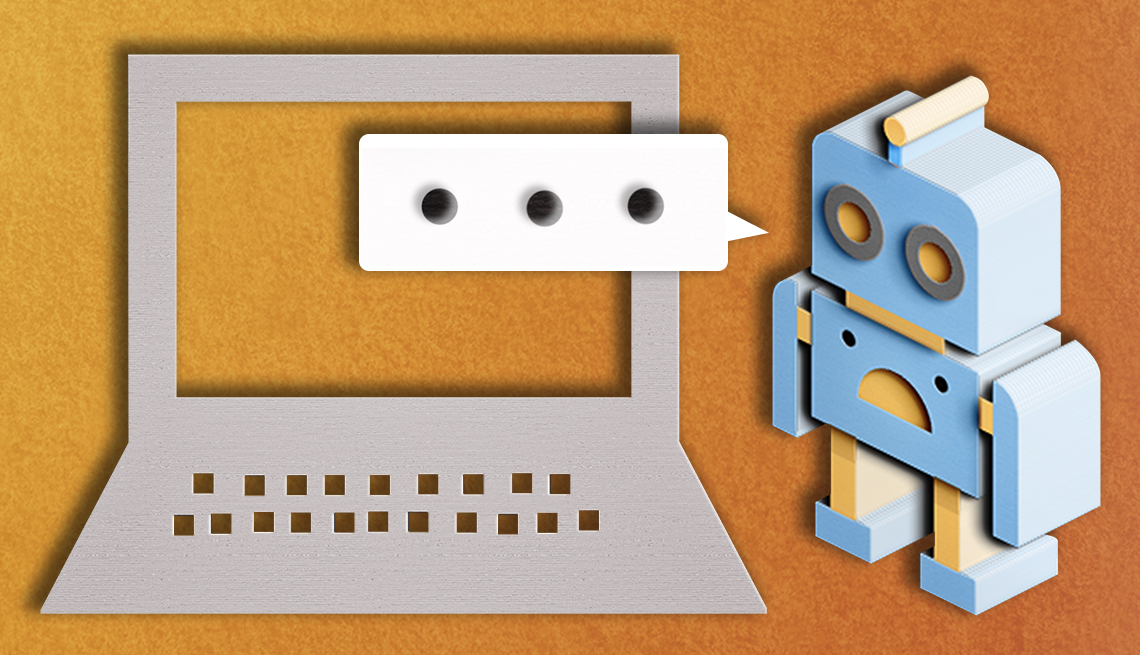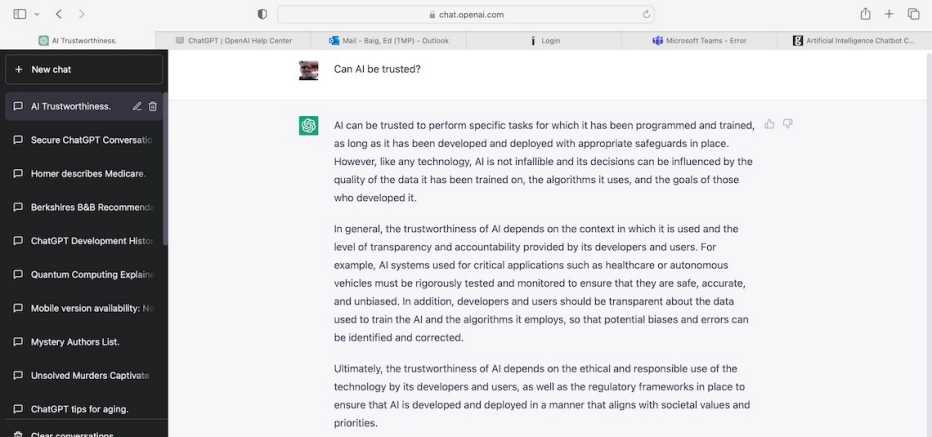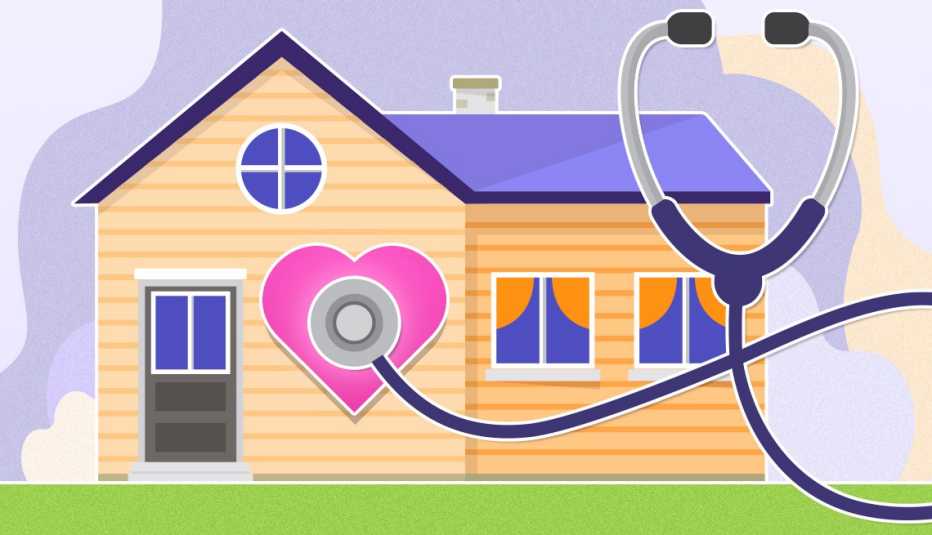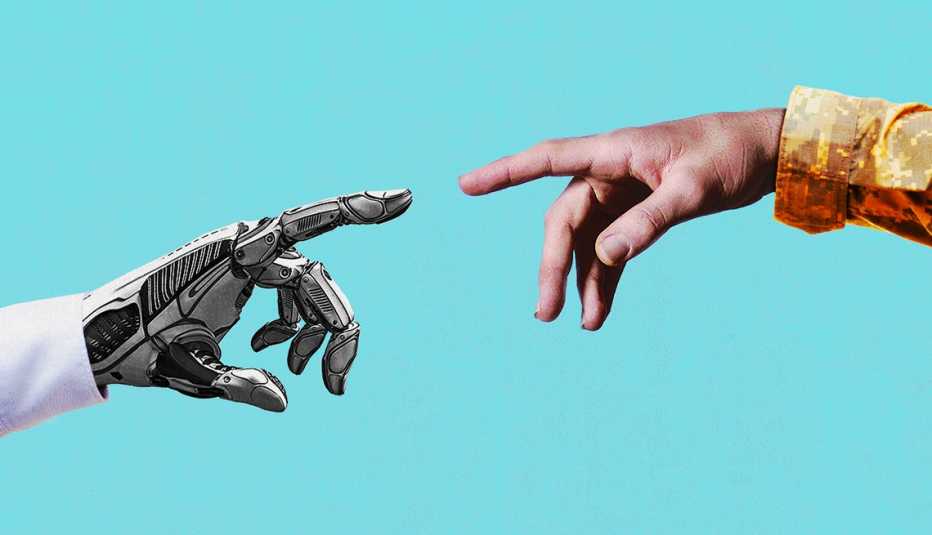Staying Fit
Avoiding the buzz and anxiety surrounding ChatGPT — the artificial intelligence (AI)-infused chatbot that can spit out term papers, produce poetry, concoct recipes or create Seinfeld scenes from scratch in roughly the time you need to read this sentence — is nearly impossible.
ChatGPT had 100 million monthly active users in January, the most recent information available, making it the fastest-growing consumer application in history, according to research from the investment firm UBS that was first reported by Reuters.


AARP Membership— $12 for your first year when you sign up for Automatic Renewal
Get instant access to members-only products and hundreds of discounts, a free second membership, and a subscription to AARP the Magazine.
Beyond the headlines, if you’re still puzzled by the controversy, you’ll want to know how ChatGPT and other AI bots could affect you now and in the future. Here are questions you’re likely wondering about with some answers, noted in italics, from the bot itself.
1. What is ChatGPT?
The GPT part of ChatGPT stands for “generative pretrained transformer,” and that’s a mouthful. In plain English, ChatGPT is a chatbot you can converse with as if it were a fellow human being.
OpenAI, the San Francisco company that unleashed ChatGPT in late November after years of development, trained the bot with vast amounts of human-generated data off the internet. It has been optimized for dialogue and is helped because it can remember what you wrote earlier.
ChatGPT is mostly text based. You type into a computer. No stand-alone mobile version is available right now. But OpenAI describes a not-yet-widely available new version, GPT-4, as having “multimodal” AI capabilities. And that means it can analyze images beyond your keystrokes, and respond accordingly via text.
2. How do I start?
Head to chat.openai.com and register with an email address, Microsoft account or Google. Practice patience. Because of overburdened servers, you may not get immediate access.
A “research preview” is free to use, and OpenAI has rolled out a pilot $20-a-month subscription plan called ChatGPT Plus that promises faster response times and access even when demand is high. Subscribers get first dibs to try fresh features, including the aforementioned GPT-4 version, which OpenAI released March 14. The company has a waiting list.
3. How can ChatGPT help people 50 and older?
For this question, we asked ChatGPT itself, which often refers to itself in the third person:
ChatGPT can answer questions about almost any topic, including health, finance, technology, and current events. Older adults can ask questions about topics they may not be familiar with, and ChatGPT can provide reliable and accurate information.
1. Providing companionship: Many older adults may feel isolated or lonely, especially if they live alone. ChatGPT can provide companionship by engaging in conversations and responding to their queries, thus reducing their sense of isolation.
2. Offering mental stimulation: Engaging in conversations with ChatGPT can provide mental stimulation, which is essential for brain health. It can help older adults stay mentally active and keep their cognitive abilities sharp.
3. Sharing stories and experiences: ChatGPT can listen to stories and experiences that older adults wish to share. This can be therapeutic and help them feel heard and valued.
4. Suggesting activities and hobbies: ChatGPT can suggest activities and hobbies that older adults may enjoy. This can help them stay active, both mentally and physically, and can also provide a sense of purpose and fulfillment.
As a user, you might ask ChatGPT for creative ideas on how to celebrate your 25th wedding anniversary, put together a retirement party, explain blockchain technology in simple terms, prepare a spreadsheet to manage your finances or plan a vacation.
You can type something like, “I want to visit the Berkshires in July. Any reasonably priced B&Bs you can recommend that have availability?”
After the bot delivers a list of options, you might follow up with the prompt, “Are any near Tanglewood?” referring to the Lenox, Massachusetts, summer home of the Boston Symphony Orchestra. Or follow up again with “How can I get tickets?” You’ll also want to request phone numbers for the various listings, since ChatGPT can’t help you with the “availability” part of your query right now.
“It’s important to note that availability and prices can change quickly, so I recommend checking with each B&B directly for current availability and pricing. Additionally, it’s always a good idea to read reviews from previous guests to get a sense of the experience and amenities offered.”
“These chatbots can understand language in a way that feels really new,” says Jess Sullivan, a psychology professor at Skidmore College in Saratoga Springs, New York. “And this means that there is very little skill required to start engaging with them. … That’s a huge game changer.”
ChatGPT can also assist lifelong learners or people taking on new hobbies, Sullivan says. It can help you generate computer code to build a web page, run a statistical calculation or discover something new about the world. You might employ it to bone up on your lapsed math skills and help the kids or grandkids with their schoolwork.
Alex Mahadevan, director of the Poynter Institute for Media Studies’ MediaWise media literacy initiative, says the bot “has the ability to generate relatively good documentation for any kind of official letters you might send.” For example, if you’re contesting a medical bill, you can ask ChatGPT to produce a letter to the ABC insurance company asking why you weren’t reimbursed for, say, an X-ray.
You may have to make only minor tweaks before sending the letter out as if you wrote it yourself. If you’re not satisfied with ChatGPT’s initial response, click “regenerate response” and have it try again.
“It can do really boring things that might essentially be a waste of brainpower relatively quickly and efficiently,” Mahadevan says.
You can hit it up with deadly serious questions, too, asking whether certain types of cancers can be treated. ChatGPT will supply an answer, albeit with a key qualifier: “It is important to consult with a health care professional to discuss the best treatment options for your specific case.”








































































